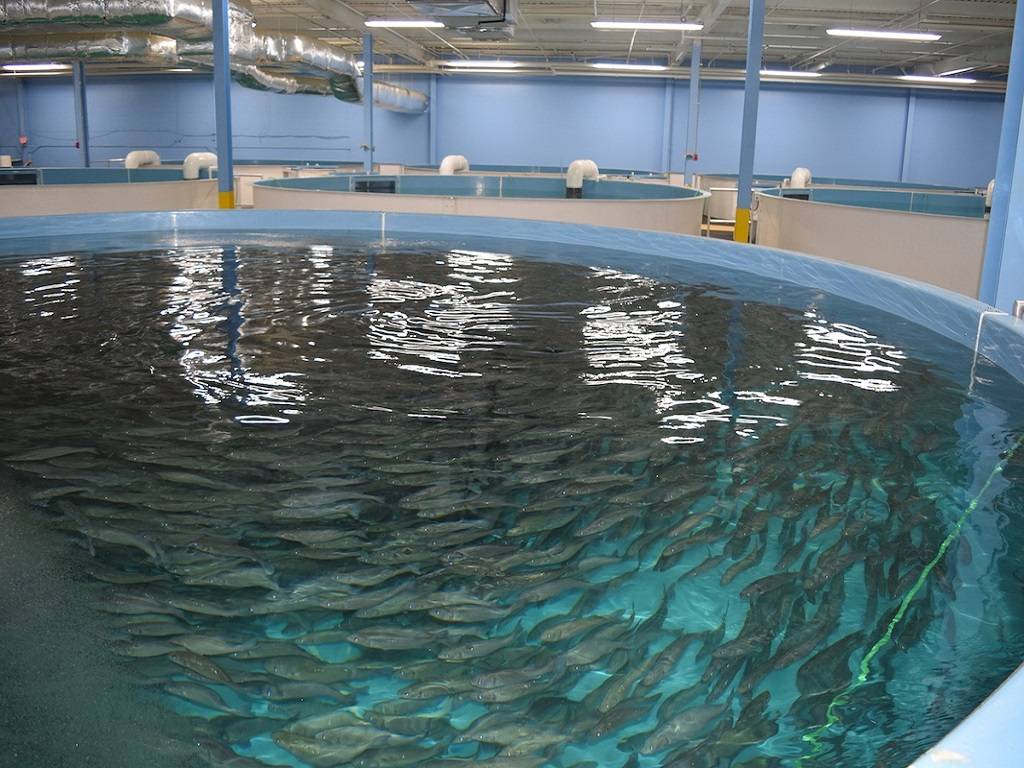
Do you wish to begin a fish farming business but don’t have much knowledge? If yes don’t worry, in this article we will provide you a step-by-step guide that will help you start a profitable fish farming business.
The commercial opportunity of fish farming demands specialized knowledge, abilities, and daily careful monitoring. Around the world, commercial fish farming has proven to be a financially rewarding business venture. Fish is a tasty, nutritious food that is high in protein and low in calories and cholesterol.
Is Fish Farming Business Profitable?
For a variety of reasons, fish farming is a successful business. The following are a few of them:
-
One of the world's fastest-growing food production industries is fish farming.
-
The demand for fish and fish products is huge and growing worldwide.
-
Fish and products related to fish are always in great demand and demand at high prices.
-
Fish farming contributes significantly to economic growth by creating a large range of operational and support employment.
-
There are several species of fish with a rapid rate of growth. Farming those fast-growing fish species ensures rapid returns on your investment.
-
People with other occupations or jobs can also start this business.
-
The fish farming project is also available for financing support from banks.
Fish Farming Business Ideas for Beginners
Following are the basic steps one should follow in order to start a Fish Farming Business:
The type of fish you plan to grow should be your first priority when beginning a fish farm. The most popular fish farming business ideas with high returns are mentioned below.
1. Choose the Type of Fish for Farming
Tilapia Fish Farming: After salmon and carp, tilapia has grown to become the third most important and popular fish. The main factors that contribute to tilapia fish farming's great profitability and popularity are its high protein content, large size, quick growth (it takes 6 to 7 months to reach harvest size), and delicious flavor.
Shrimp Farming: In Southeast Asia, commercial shrimp farming has existed for more than a century. The most basic cultural strategy is widely used shrimp farming. Market demand is very high and can be initiated on a small-scale basis.
Ornamental Fish Farming: Ornamental fishes are colorful, fancy, and generally known as aquarium fish. Industry analysts claim that the ornamental fish trading industry, with its $6 billion in annual revenue and 8% annual growth rate, has a lot of room for growth.
Cat Fish Farming: Catfish farming for profit is quite profitable. Aquaculture Farmers can start catfish farming on their own or in combination with other species. Catfish farming can be started on a small scale and for a relatively low cost.
Prawn Farming: Prawn demand is growing on a global scale. A freshwater fish farm and a freshwater prawn farm are extremely similar. One can start prawn farming with the help of current, enhanced technology to fulfill both domestic and foreign demand needs.
2. Understand the Market
Before beginning a fish farming business, a feasibility study and business strategy are required. Conduct a thorough market analysis before starting a fish farm. Recognize the needs of the local market. Before beginning fish farming for export, consult with fish processing units. Create a backup marketing plan you can use.
3. Learn the Skills
Starting a fish farming business requires having certain skills. You can receive instruction at farms operated by the government.
You will learn how to manage water quality, control disease, feed fish, market them, and process them by working at a successful fish farm.
-
Make sure you have a reliable source of clean water.
-
Verify whether the water temperature is ideal for the fish species being raised in your aquarium.
-
For feeding and harvesting, make sure the pond is easily accessible.
-
Chemical and bacterial tests should be performed on the water where fish farming will begin.
-
Learn about the modern technical method of risk assessment and as well as risk management.
-
Finding out reliable suppliers for fish eggs, fingerlings, and fish feed are very crucial in the fish farming business.
-
Figure out legal compliance and permission needed to start a fish farming business in your locality.
4. Create a Fish Farming Business Plan
Making a business plan document is crucial if you want to launch a successful fish. A business plan is essentially a document that serves as a blueprint for the company's future operational efforts.
Additionally, it is the most important element for arranging investment capital. Your fish farming business plan needs to address a number of basic issues, such as the ones listed below:
-
Start-up and recurring costs to run a fish farm.
-
Your target customers.
-
Pricing plan.
-
Profit margins.
-
How and where do you plan to sell fish.
5. Calculate the Cost of Starting Fish Farming Business
In this farming industry, there are primarily two types of capital investment. The first is a fixed capital cost, whereas the second is an operating expense. Land and buildings, crafts ponds, transportation vehicles, plumbing fixtures, many tanks, oxygen meters, etc. are all included in the capital cost.
Operating cost includes purchasing eggs or fingerlings, fish feed, electricity, fuel, labor, chemical, medicine, tax, insurance, telephone, transportation, and other maintenance cost involved.
Prepare a thorough cost analysis of your intended fish-related farming project before starting your business. Depending on the fish you choose for fish farming, calculations will vary. Furthermore, take into account the entire land area and your intended production.
6. Choose the Right Location
A constant flow of water is the most important aspect of fish farming. Finding a pond with a reliable water source is essential if you want to start in a village. On the other hand, if the location is in a city or town region, you must have access to the municipal water source.
7. What Equipment is Needed for Fish Farming
The purchase of specific equipment categories is a critical part. The following are some of the fundamental tools and equipment used in fish farming:
-
Pumps
-
Aeration devices
-
Nets/ Seine Reels
-
Handling and Grading Equipment
-
Graders
-
Fish counters
One of the main sources of animal protein in a diet is fish. The consumption of fish as food is becoming more and more common worldwide, which has increased the fish farming business.









